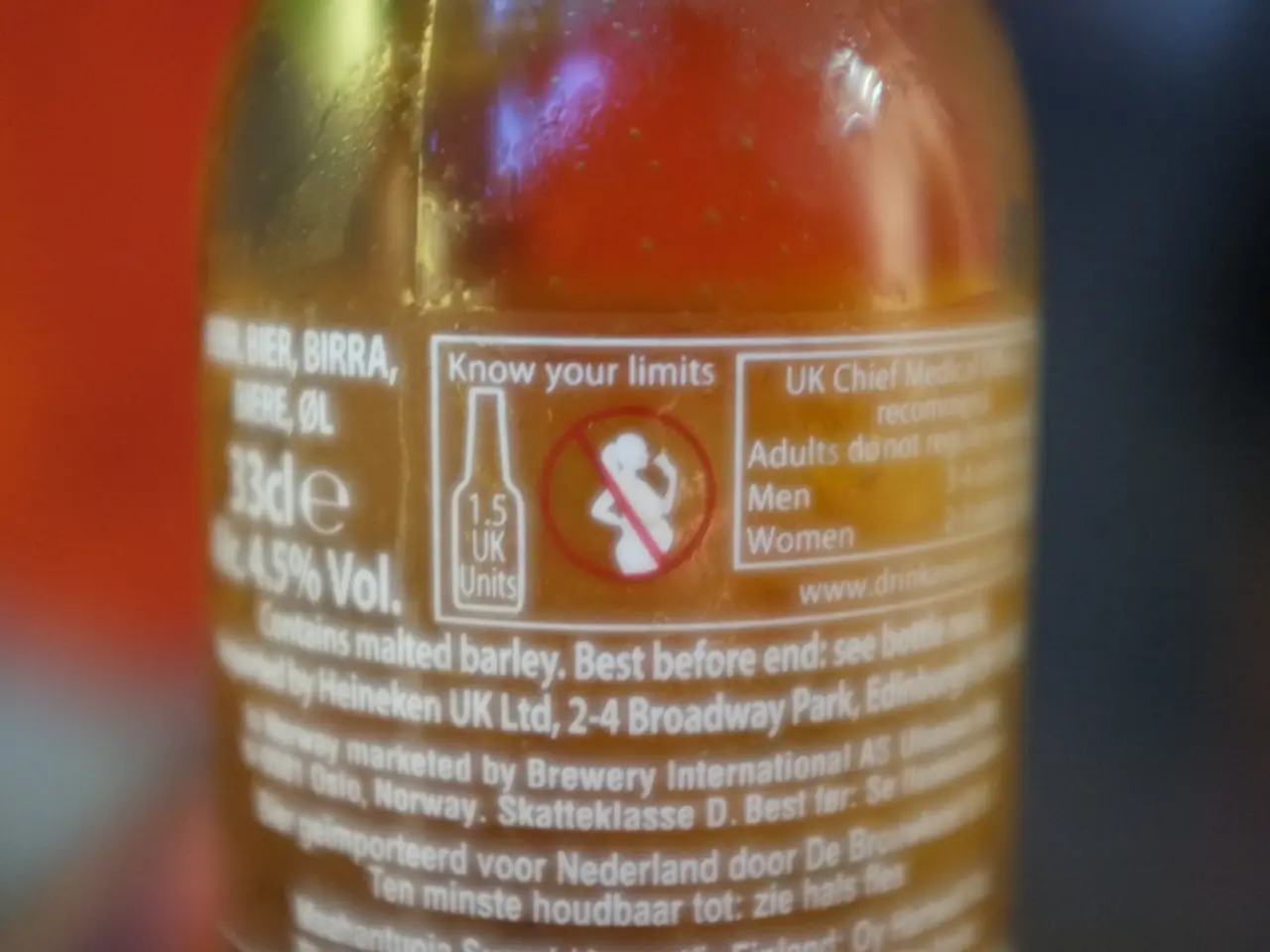Potential Interactions with Xarelto: A Look at Alcohol, Supplements, and Other Factors
================================================================
Xarelto, a brand-name drug used to treat or prevent blood clots, comes with certain potential drug interactions that may increase the risk of bleeding or affect blood clotting. Here's a breakdown of the key interactions to be aware of.
Xarelto and Anticoagulants
Taking Xarelto with other anticoagulants, such as apixaban (Eliquis), warfarin (Jantoven), dabigatran (Pradaxa), heparin, and enoxaparin (Lovenox), significantly increases the risk of bleeding.
Xarelto and NSAIDs
Nonsteroidal anti-inflammatory drugs (NSAIDs), like ibuprofen (Advil), naproxen (Aleve), aspirin, celecoxib (Celebrex), and magnesium salicylate (Doan’s), can heighten the risk of severe bleeding when combined with Xarelto.
Xarelto and Antiplatelet Drugs
Medications like clopidogrel (Plavix) and ticagrelor, which affect platelet function, may increase bleeding risk when taken with Xarelto.
Xarelto and Certain Cancer Drugs
The interaction between Xarelto and certain cancer drugs, such as ceritinib (Zykadia), may alter drug effects or side effects.
Other Considerations
Combining Xarelto with alcohol or other drugs that affect coagulation requires caution, as these may also increase bleeding risk. While SSRIs (e.g., fluoxetine, sertraline) can increase bleeding risks, specific interactions with Xarelto are less clearly defined but warrant monitoring.
In practice, doctors avoid prescribing Xarelto alongside other anticoagulants or NSAIDs unless the benefits outweigh the risks. Always inform your healthcare provider about all medications you take to manage these interactions carefully.
Specific Interacting Drugs with Xarelto
| Drug Class | Examples | Potential Interaction | |-------------------------|------------------------------------|----------------------------------------------| | Anticoagulants | Apixaban, Warfarin, Dabigatran, Heparin, Enoxaparin | Increased bleeding risk | | NSAIDs | Ibuprofen, Naproxen, Aspirin, Celecoxib, Magnesium salicylate | Increased bleeding risk | | Antiplatelet agents | Clopidogrel, Ticagrelor | Increased bleeding risk | | Certain cancer drugs | Ceritinib (Zykadia) | Potential drug interaction altering effects | | Alcohol | — | May increase bleeding risk |
For safe use of Xarelto, consult your doctor before starting or stopping any medication or supplement. They may suggest safer alternatives (e.g., acetaminophen for pain) where necessary.
Before starting Xarelto treatment, tell your doctor if you're taking an omega-3 fatty acid supplement. Omega-3 fatty acids may interact with Xarelto and increase the risk of side effects.
- It's crucial to be aware that atopic dermatitis, a chronic skin condition, can potentially be affected by certain medical-conditions, such as obesity and depression.
- A predictive science study suggests a correlation between type 2 diabetes and ulcerative colitis, another chronic disease requiring medical-conditions management.
- Science has shown that chronic-diseases like COPD (chronic obstructive pulmonary disease) and hepatitis share overlapping symptoms and risk factors, necessitating careful health-and-wellness considerations.
- Therapies and treatments for chronic-diseases like diabetes and colitis may have adverse interactions with other medications, such as anticoagulants, which could potentially compromise their efficacy.
- While investigating the interactions between Xarelto and specific cancer drugs, researchers discovered that the combination may alter drug effects or side effects, similar to the interaction between Xarelto and other anticoagulants.
- Diabetics need to exercise caution when combining Xarelto, prescribed for blood clot management, with other blood-thinning medications or antiplatelet drugs like clopidogrel, as these interactions can increase bleeding risks.
- Aq, or omega-3 fatty acids, can interact with Xarelto and potentially increase the risk of side effects when taken in conjunction with this drug, highlighting the importance of disclosing all medical-conditions and medications to healthcare providers.
- Healthcare providers may recommend safer alternatives for managing chronic-diseases-related pain, such as acetaminophen, to reduce the risk of interactions with Xarelto.
- In many cases, treatment strategies for various medical-conditions like depression, dermatitis, and cancer involve therapies and treatments that require careful consideration and monitoring of potential drug interactions, especially when using drugs like Xarelto.




